SAMA Homes
Lagaan de latón con revestimiento de estaño
Lagaan de latón con revestimiento de estaño
128 en existencias
No se pudo cargar la disponibilidad de retiro
- El latón Lagaan de SAMA Homes con revestimiento de estaño es muy duradero.
- El sabor y el valor nutricional de los alimentos se conservan gracias a la superficie Kalai, que es segura para el contacto con alimentos.
- Una vajilla india esencial para servir curry, daal, biryani y condimentos para una auténtica experiencia gastronómica india.
- El latón aún se usa comúnmente en muchos pueblos y aldeas del país. Cocinar alimentos en recipientes de latón aumenta la resistencia y la inmunidad.
-
Dimensiones: 3 tamaños disponibles
a) 4 pulgadas de alto, 12 pulgadas de diámetro, 2 kg 800 g de peso
b) 4,5 pulgadas de alto, 14 pulgadas de diámetro, 3 kg 440 g de peso
c) 5 pulgadas de alto, 16 pulgadas de diámetro, 4 kg 230 g
Características principales:
- Cocinar en un Lagaan de latón libera aceites naturales, realzando el sabor y el gusto de la comida con sabores únicos y auténticos.
- La presencia de zinc en el latón ofrece beneficios potenciales para la salud al ayudar en la purificación de la sangre.
- Utilice polvo de Pitambare para la mejor y tradicional limpieza de artículos de latón, asegurando su longevidad y brillo.
- Prepare deliciosos platos indios para sus amigos y familiares en este Lagaan de latón único y de aspecto étnico con revestimiento de estaño, agregando un toque de tradición a sus creaciones culinarias.
SKU:SH-BG_64
❓ Have a specific question?
From shipping to sustainability, we have answers. Check our FAQ →
You Might Also Like in Ayurvedic Cookware | Authentic Copper & Brass Kitchenware – Sama Homes
Explore Related Categories
- Brand: View all SAMA Homes Products
- Category: See more Handis
- Collection: Browse Ayurvedic Cookware | Authentic Copper & Brass Kitchenware – Sama Homes
- Collection: Browse Batería de cocina
- Collection: Browse Colección de latón de Sama Homes
- Collection: Browse Utensilios de cocina
- Collection: Browse Utensilios de cocina de latón
Browsing our catalog of 16,000+ authentic items. View Full Catalog.
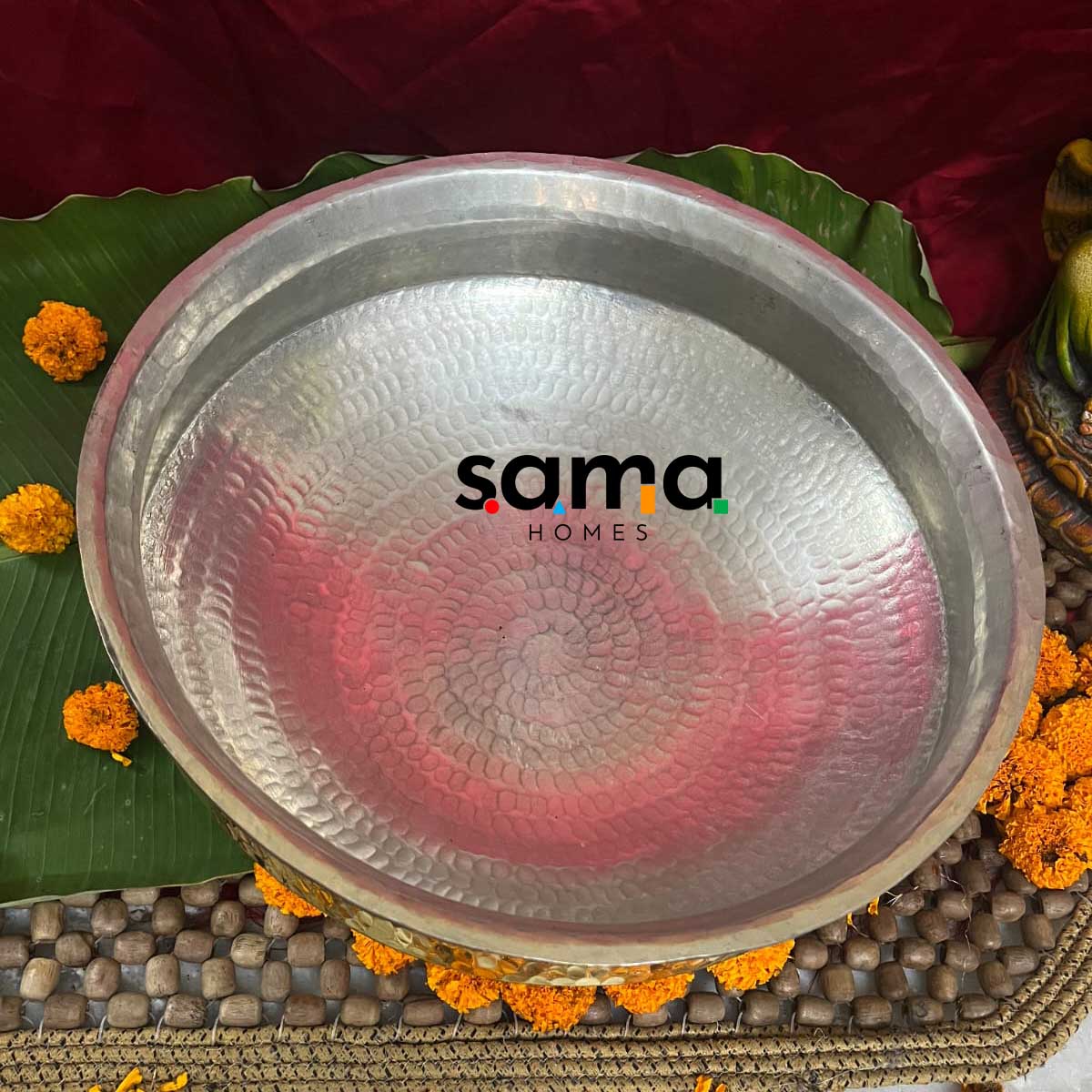
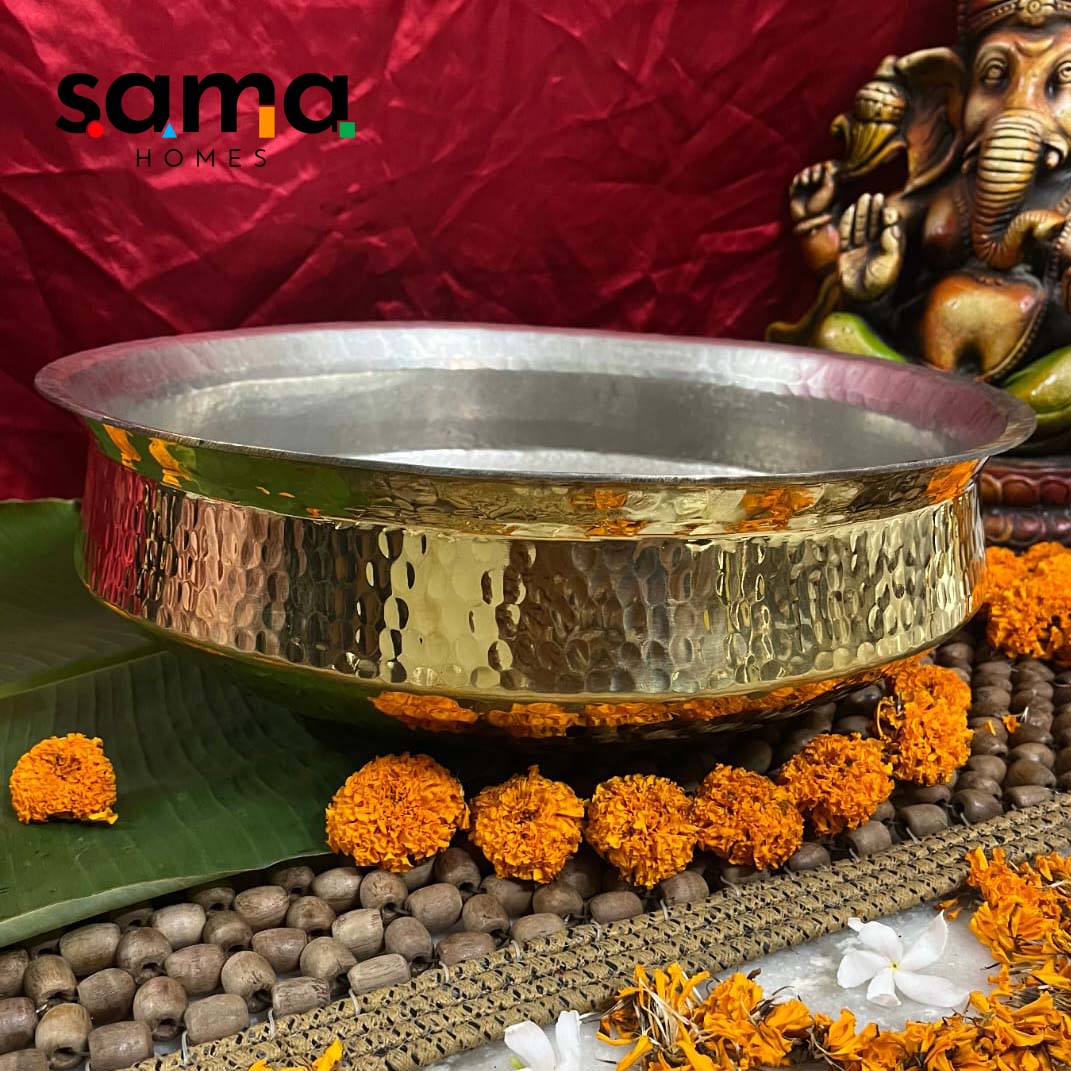
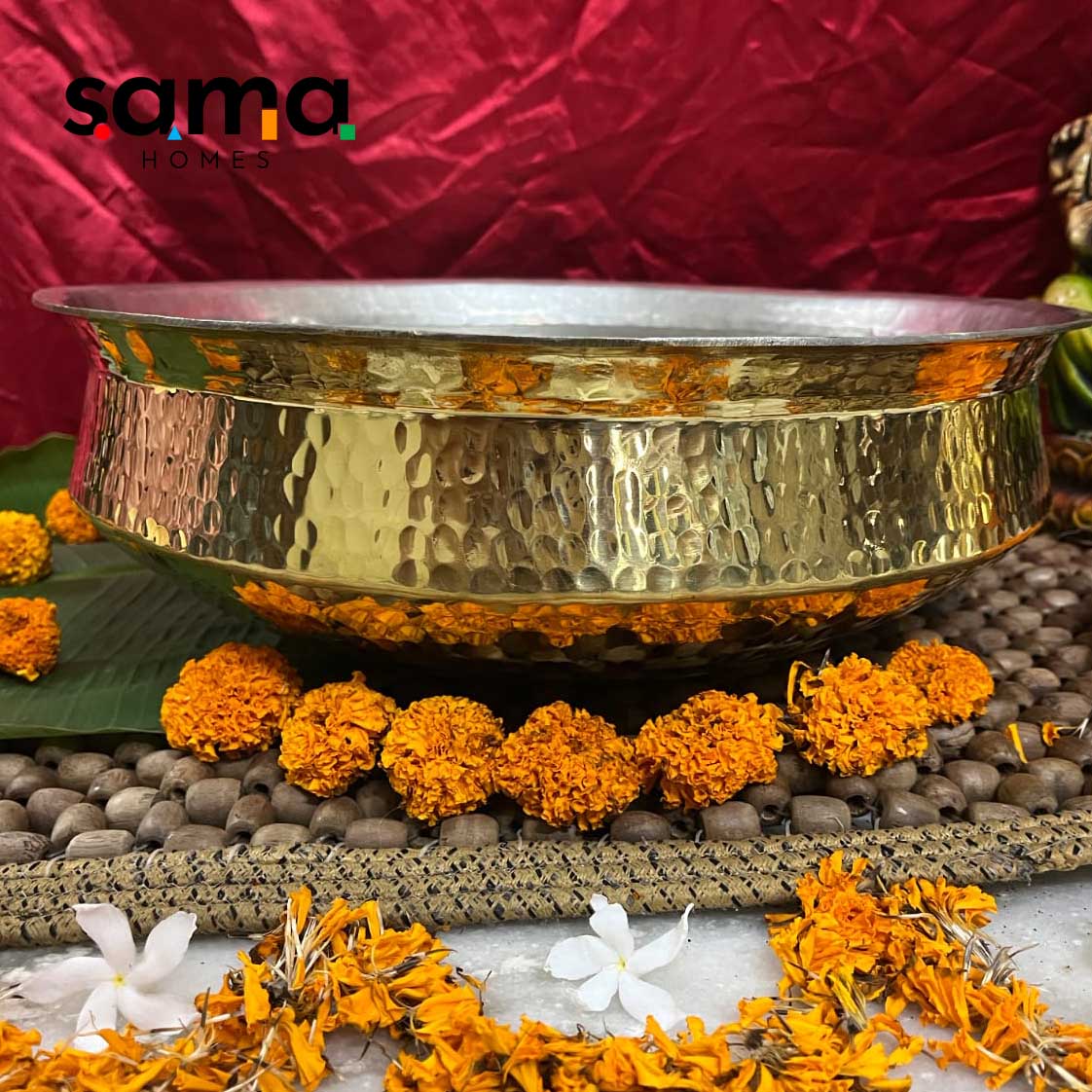
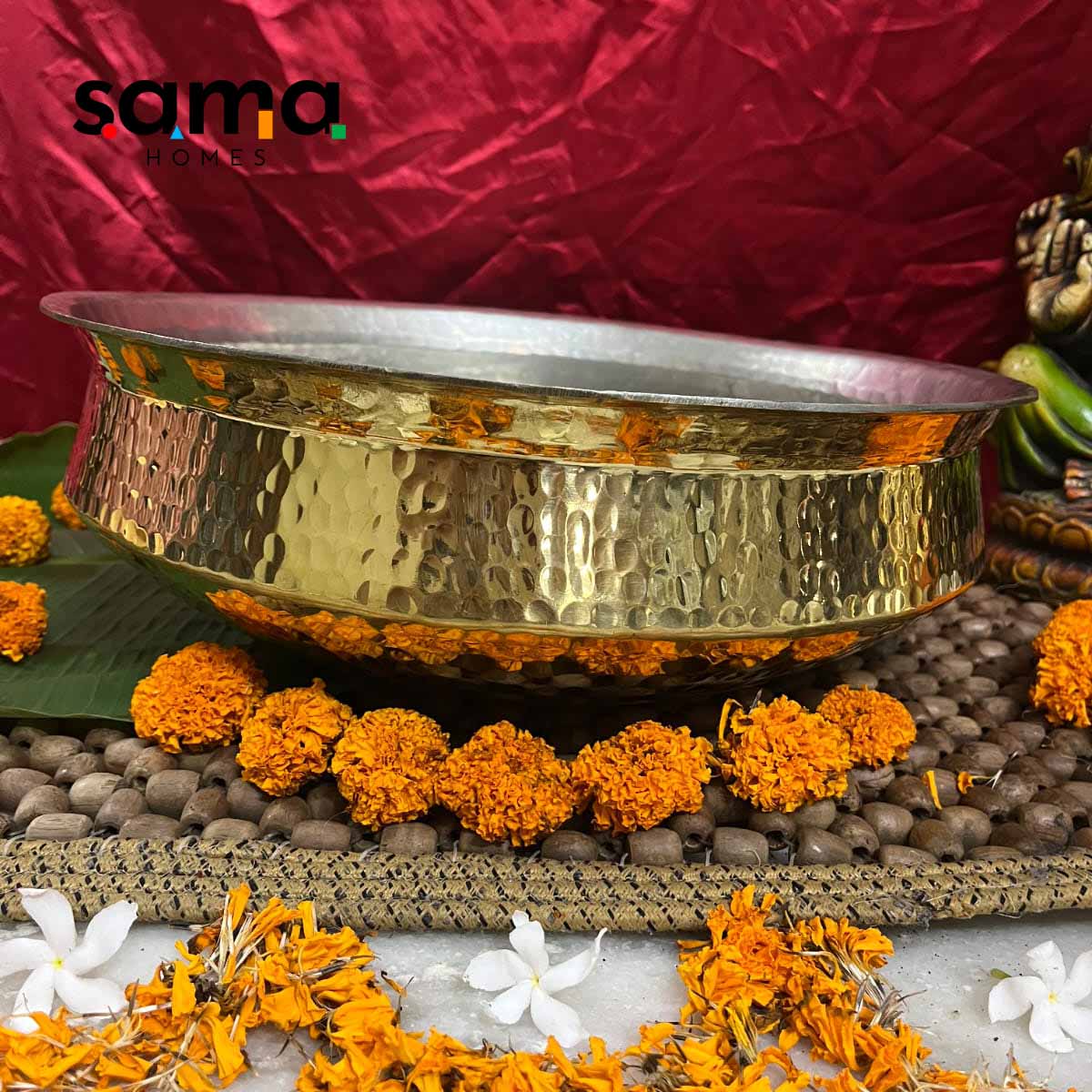
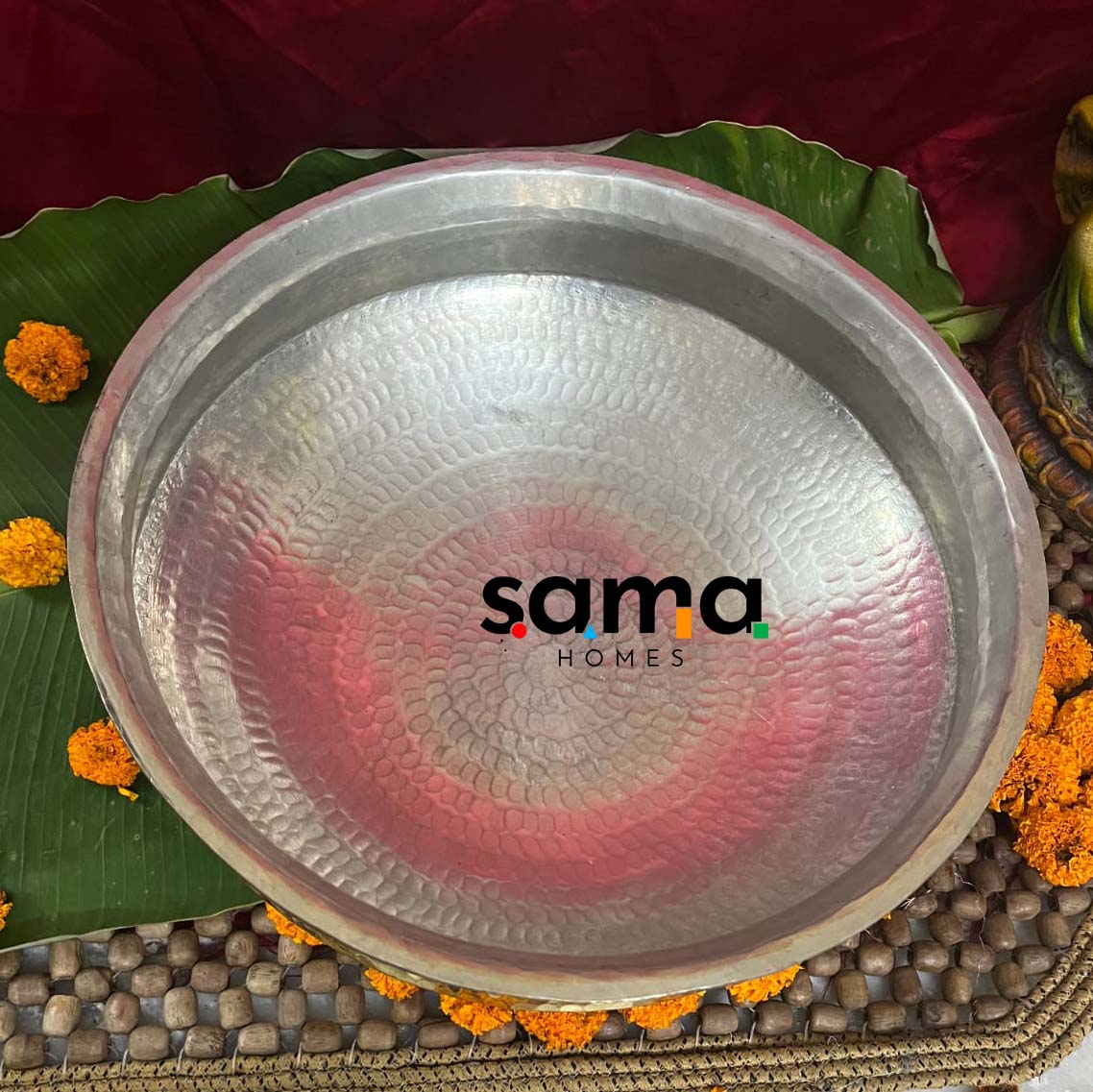
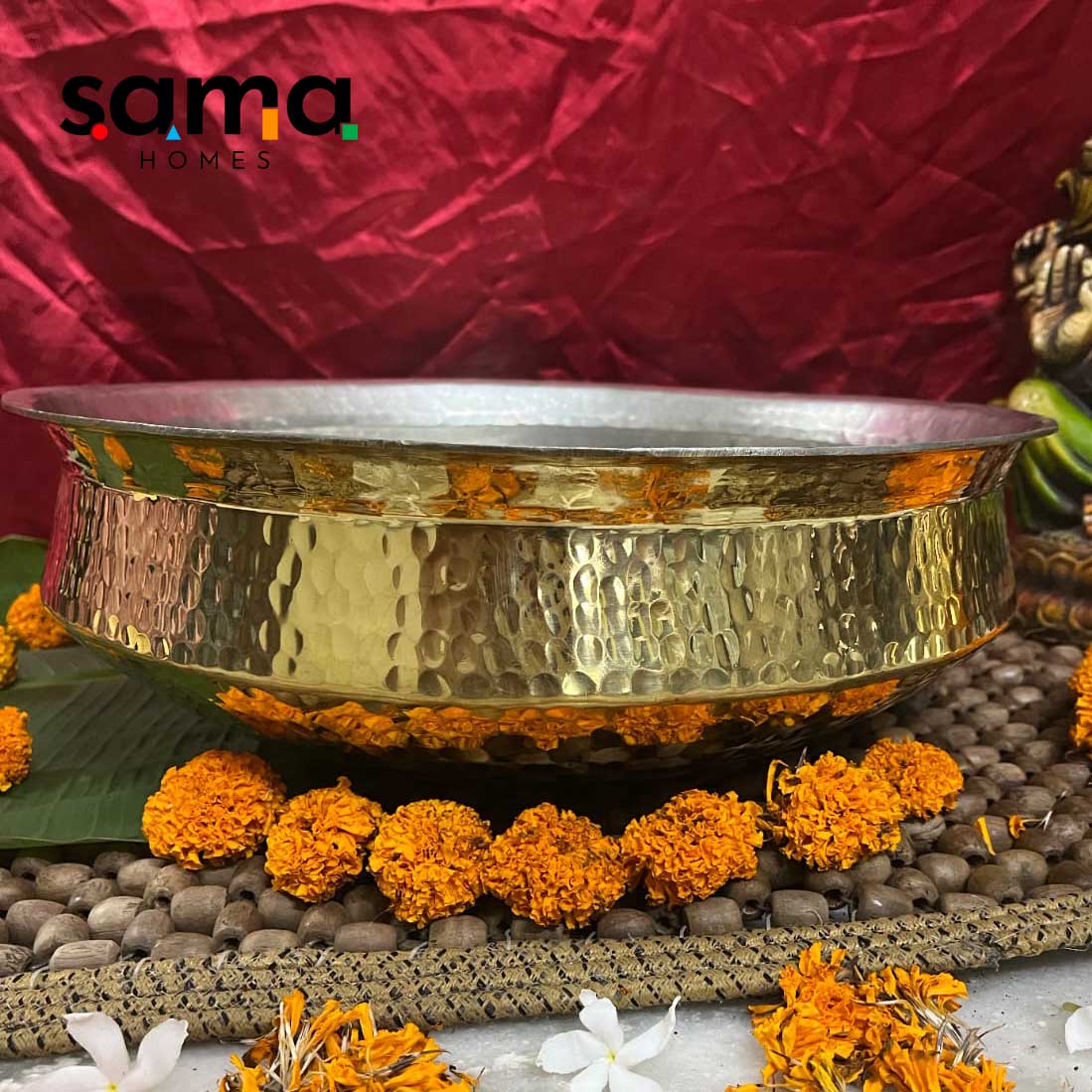
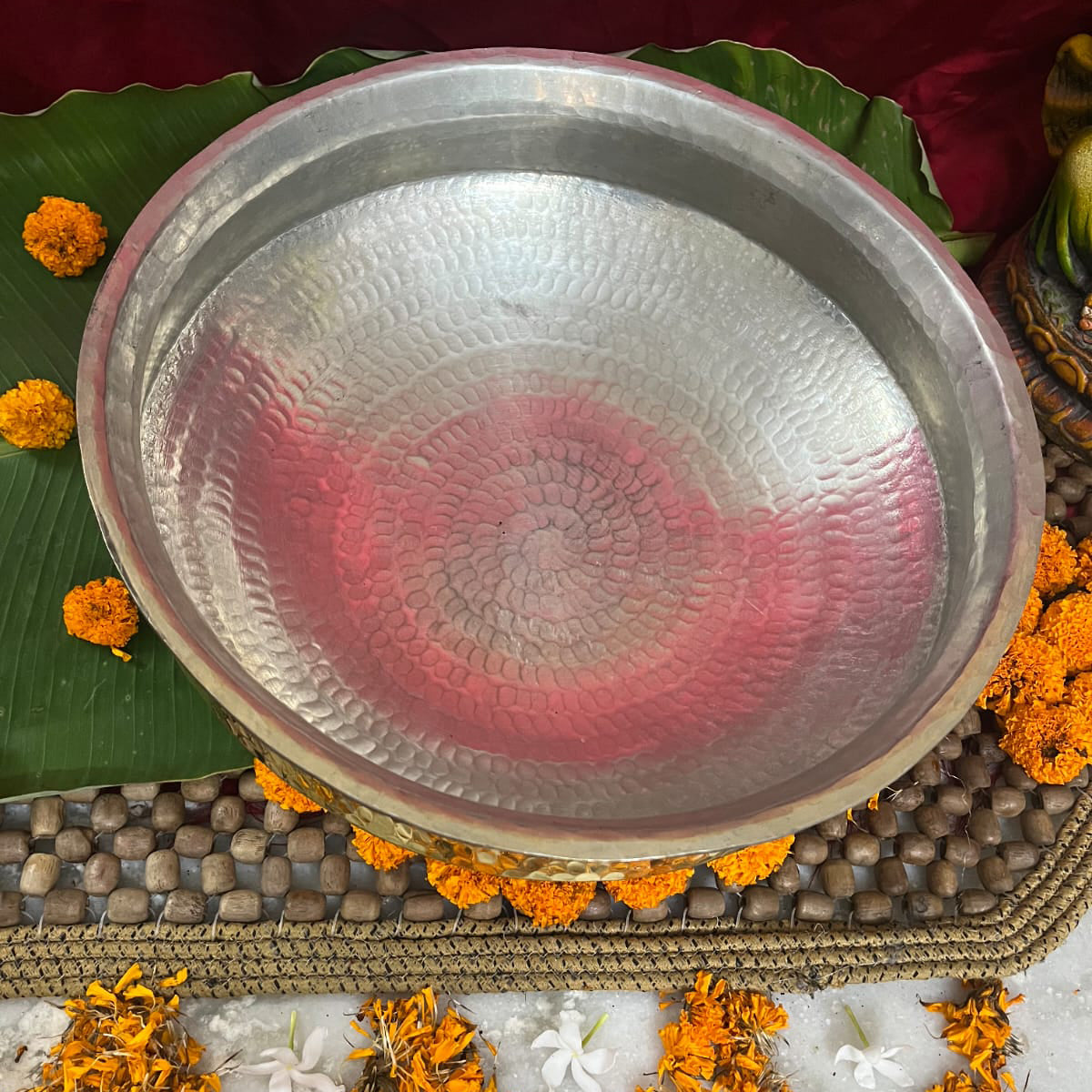

Utensilios de latón: una opción sostenible para la cocina
El latón, una aleación de cobre y zinc, ofrece una opción sorprendentemente ecológica para diversos artículos del hogar. Así es como el latón contribuye a un estilo de vida más sostenible. ¿Buscas maneras de hacer tu cocina más ecológica? ¡Considera los utensilios de latón! Estas hermosas y funcionales herramientas ofrecen sorprendentes beneficios de sostenibilidad.
Contenido desplegable
Beneficios de los utensilios de latón
- Larga duración: El latón es un metal robusto que puede durar generaciones con el cuidado adecuado. A diferencia de los utensilios desechables o endebles, el latón resiste el paso del tiempo, lo que reduce el desperdicio y la necesidad de reemplazos frecuentes.
- Menor impacto en los vertederos: al elegir latón duradero, evita que los utensilios terminen en los vertederos, lo que contribuye a un medio ambiente más limpio.
- Propiedades antibacterianas naturales: El latón posee propiedades antibacterianas inherentes, que pueden resultar beneficiosas, especialmente para herramientas de cocina de uso frecuente.
- Conductividad térmica: el latón conduce el calor de manera eficiente, lo que garantiza una cocción uniforme y reduce potencialmente los tiempos de cocción, lo que puede ahorrar energía.
Cómo los utensilios de latón reducen tu huella de carbono
- Menor huella de producción: en comparación con los materiales vírgenes, el latón reciclado requiere menos energía para su producción, lo que genera menores emisiones de gases de efecto invernadero.
- Menos desperdicio, menos transporte: los utensilios de latón duraderos minimizan la necesidad de reemplazos frecuentes, lo que reduce la generación de desperdicios y el impacto ambiental del transporte de productos nuevos.
- Uso multigeneracional: Los utensilios de latón pueden transmitirse de generación en generación, lo que reduce aún más la necesidad de nueva producción y su huella de carbono asociada.
Consideraciones de sostenibilidad
- Revestimiento de estaño: Para alimentos ácidos, elija utensilios de latón revestidos de estaño. El revestimiento evita que los alimentos reaccionen con el latón y el sabor metálico. El latón sin revestimiento es mejor para productos secos o alimentos no ácidos.
- Cuidado adecuado: el lavado a mano y el pulido ocasional mantienen los utensilios de latón en su mejor estado y prolongan su vida útil, maximizando su valor de sostenibilidad.
Adopte una cocina más ecológica
Al incorporar utensilios de latón a tu rutina de cocina, no solo añades un toque de elegancia, sino que también tomas una decisión consciente para un futuro más sostenible. Así que, ¡deshazte de los desechables y disfruta de la belleza y durabilidad del latón!








